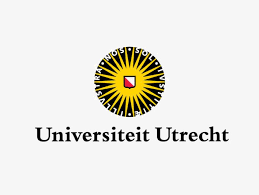Information for Master Students
Master students are welcome to undergo the proteomics experience of a lifetime. We offer a wide variety of interesting research topics, ranging from native mass spectrometry, (quantitative) proteomics to bioinformatics.
Available student project:
Studying proteasome activators using metabolomics
Metabolomics is an exciting upcoming field that studies the small molecule metabolite profile of the cell: the ‘metabolome’ that consists of amino acids, sugars, organic acids, lipids, etc. Metabolite levels change as a result of the activities of genes and proteins during all biomolecular processes in the cell. Importantly, most diseases and the action of drugs also result in metabolic changes. Therefore, studying these changes can identify novel targets to treat diseases or provide new insights into how drugs work. The proteasome is a large protein complex that is responsible for the degradation of misfolded and damaged proteins. Proteasome dysfunction can lead to decreased degradation of misfolded proteins, resulting in the formation of protein aggregates. Many neurodegenerative diseases, such as Alzheimer’s or Parkinson’s disease are characterized by the formation of such large intracellular toxic aggregates and eliminating these toxins by re-activating the proteasome could be a novel way to treat neurodegenerative diseases. The metabolomics group studies how several proteasome activators, which we recently identified in a large screen, change the metabolome and vice versa. The aim of our research is to identify the mode of action of these drugs, which is not yet known. For these studies, we use a combination of state-of-the-art mass spectrometry, HILIC (hydrophilic interaction liquid chromatography), activity-based protein profiling (using fluorescent probes to measure proteasome activity using an SDS-PAGE-based readout) and model cell systems we culture in the lab.
There are various possibilities for bachelor and master students to do metabolomics research in our group. For further information, please contact Dr. Celia Berkers (C.R.Berkers@nulluu.nl).
For more information on other master topics you can contact: Renske van Gestel
![]()

